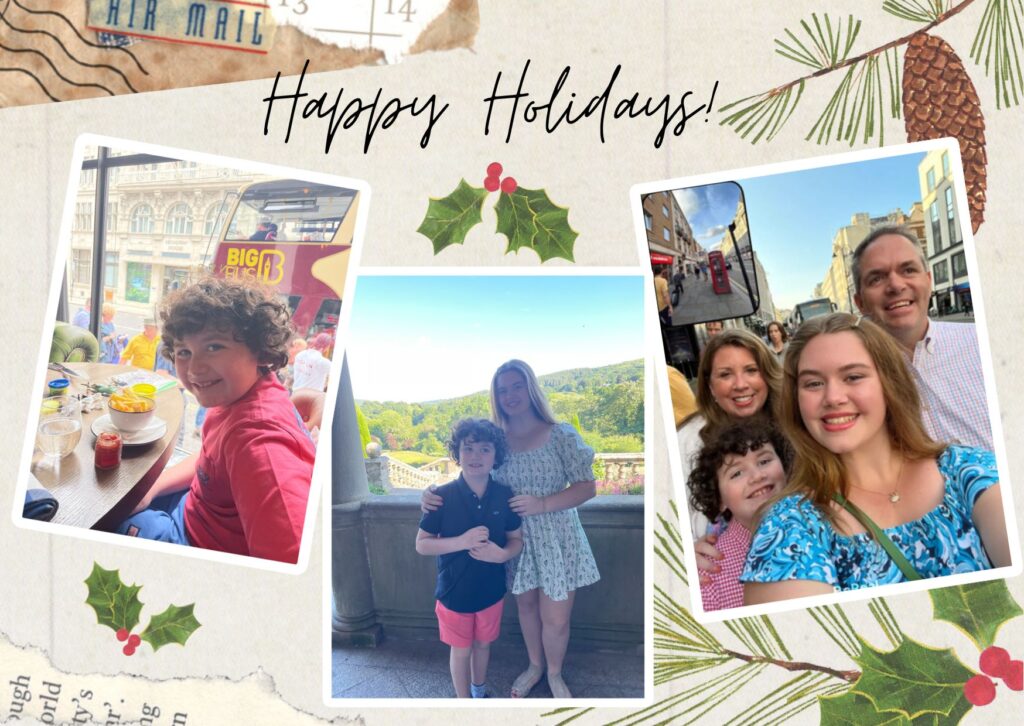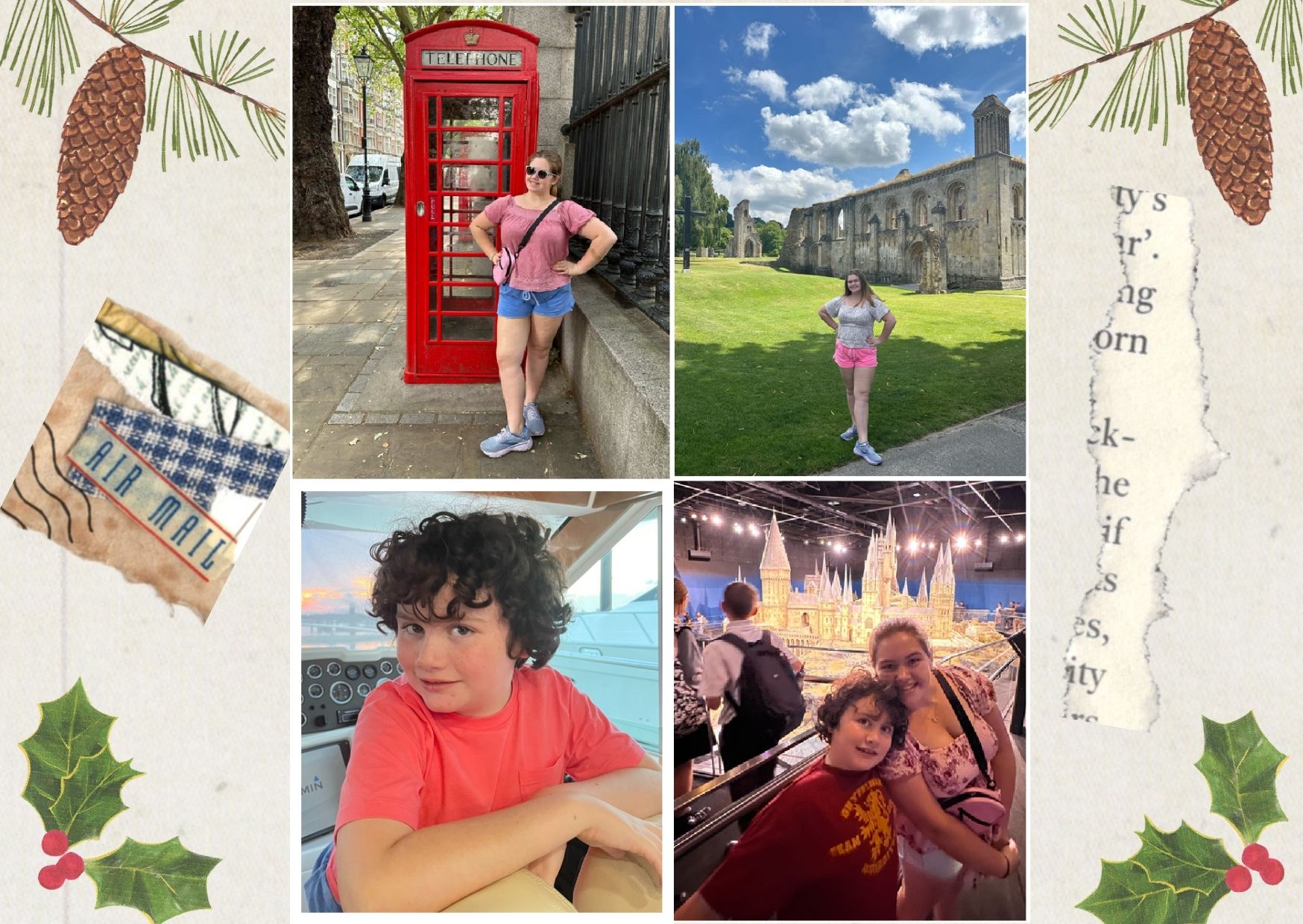10 Tips to Manage Your Emotions & Communicate Better This Holiday Season

As we approach the holiday season, everyone has a list of expectations about how it will go. “Last year was a disaster when Uncle XX went on and on about the government.” Or “We better not ask Aunt XX to share too much about her work, everyone was embarrassed about how much she overshared.” Or “Make sure to not ask XX to bring a side dish, she got into arguments with everyone about making it gluten free/sugar free/vegan.”
Add in a dose of an election year, a war in Ukraine and one in Israel and there are landmines galore to deal with. Not to mention the fact that some family members do not believe in or understand ADHD. With many adults finding out that the reason behind their many lifelong struggles is ADHD, there can be a struggle to help relatives understand this new information.
While it would be ideal for a family to get educated and be supportive often this is not the case. Not to mention that children with might need their own supportive environment as they navigate sitting at a table during long conversations, the excitement of seeing people after a long absence and the anticipation of highly exciting gifts.
So, while families may want to come together with the best of intentions, many still manage to fall into arguments and disagreements.
Some of these arguments really stem from the spark being ignited that reminds people of what happened last year, or in the past. When past events are still fresh and unresolved, the mere idea of getting together can spark anxiety and fear that this year will be “more of the same.” Making it hard for families who deeply love each other to see a path towards a peaceful or stress-free holiday.
If that is your goal, I have 10 tips to help you set up your holiday with some well-deserved insulation so you’re less likely to walk into a land mine. And, if you do, a clear plan to get out of it as unscathed as possible.
It all begins with one ADHD hack that is as simple as it is named: pause.
A pause is a deep breath. It can be as obvious as you desire, or as private as needed so you simply take a quiet breath in and out in an effort to bring down your internal temperature. The simple act of intentional breathing will help you begin to feel calm and centered. From that place, you can recenter around how you want to behave and proceed in a tense moment.
The very act of pausing causes a chain reaction that empowers you to stop a tense moment from escalating. This is the starting point for “self-regulating,” a technical term shared in ADHD circles meant to address the set of skills necessary to manage your emotions.
Self-regulation is owning how you manage your feelings. And it is a super skill for many people, especially those of us who walk into tense situations and do not want them to expand. Is it limited to people with ADHD? Absolutely not, everyone needs a dash of self-regulation from time-to-time. Yet for people who feel like they are at the mercy of their feelings, learning to self-regulate is a game changer.
Not to mention, particularly helpful in an election year/war time/holiday celebration. Here are the 10 tips I share with clients on how to embrace self-regulation, so this super skill becomes a go-to when you’re feeling overwhelmed and anxious. It’s invaluable when you have to show up and participate in something as special as the holiday season with the people you love and don’t want to lose your cool.
My Top 10 To Keep Your Cool, Stay Authentically YOU & Make The Most Of Your Time With Family
#1 Educate and Anticipate
Reach out ahead of the events if there is a history of strife with regards to things you or your children with ADHD need to be comfortable and happy. Speak to hosts, relatives who might have a hard-line stance on you using strategies to support your child. You might even agree to disagree.
Not every family member believes in ADHD as a brain-based disorder or understands that children and adults need specific brain- based strategies. When it comes to ADHD-related matters often relatives and others may have lots of opinions and little knowledge. Offering a YouTube video or a book ahead of time can help family members understand. Often those who say “in my day” we did not have this diagnosis fail to understand that we are not trying to create children who cannot thrive but rather to help children thrive and be their best self.
Finding a family ally can help create a buffer to those who are vocal and to create an environment of support.
#2 Find Validation Before the Event
Some people may invite you to an argument, but you can choose not to show up. While it is frustrating and triggering for someone to suggest that it is anxiety rather than ADHD or that we “all have a bit of ADHD” or that they think if you “just push through” things will improve for you. Of course, these statements can be triggering and can leave you feeling isolated.
Before the event fill up your emotional cup by seeking support and validation from friends, support groups or online communities. This will help you feel that you do have a safe harbor to explore your ADHD even if it is not the people you wish would serve as support.
# 3 Assume that Everyone Has the Best of Intentions
If you begin your interaction with others believing that they are here to share feelings, ideas, information and to connect with you on a personal level, it is easier to feel compelled to listen earnestly. Listening is hard when you’re feeling defensive or waiting to share your position on a topic or point of view.
If you can believe your relative is coming from a well-intentioned place, it’s easier to hear them out without jumping in or interrupting. John Gottman’s work shows that it takes 5 positive interactions to overcome one negative interaction and therefore it’s crucial to remember that what you say can damage your relationship.
#4 Take a Walk in Your Relative’s Shoes
Close your eyes and imagine for a second, you’re the person you’re upset with. What would cause them to think/believe the way they do? Can you simply be curious about what’s behind their behaviors? As you listen to their words, try to reflect and reserve judgment. Simply hear their words and get curious about what’s driving their actions.
#5 Listen to Hear, Not Respond
Listening without needing to reply, just listen. You do not have to engage in a negative response, it’s completely fine to ask questions about what someone is saying without sharing your own feelings.
Because emotional regulation is all about managing the ups and downs of your feelings, sometimes it’s healthier for you to simply listen without contributing to a negative discussion. When you allow yourself to participate in this way, you can sidestep landmines that an emotionally dysregulated person may throw your way.
#6 Watch Your Tone & Monitor for Criticism, Judgment, and Dismissive Comments
If your goal is to keep your emotions in check, one way to monitor yourself is to pay attention to the subtle ways your feelings leak out. It could be a word choice, an under-your-breath comment, name-calling or even zingers. These often not-so-subtle utterances clue your family into the depth of your “real” feelings even when your words say otherwise.
#7 Defuse Emotional Flooding
When you feel upset, emotions can get flooded and hijack your brain and behavior. Self-regulate by paying attention to your body signals. Where do you typically feel heightened emotions rising up in your body? What does it feel like when you are angry or anxious? What does it feel like to lose control?
All of these are signals to you that you’re overloaded with your emotions and need a time out, pause or break from the person triggering you. Allow yourself to take the breaks you need so you stay committed to your goal.
#8 Read the Room
The skill of reading the room cannot go overstated here. Watch and monitor how the rest of your family is doing. Is everyone drowning in frustration such that an emotional breakdown is coming from someone…anyone to reduce the tension? Can you lead the emotional regulation charge by changing the subject or what’s going on in the space? Perhaps now is a good time for dessert, an after-dinner walk, or to take a bathroom break?
#9 Ask for What You Need and Have a Script
Get clear about what you need and what your children need. Pick one or two key things you feel would help your family have a good time. For instance, some kids do not process emotions quickly so they may not respond with enthusiasm to a gift, or others struggle with sitting for long periods or some children may need to open gifts in shifts to help with sensory bombardment.
Preview these needs to relatives ahead of time and signal them when you see signs that your child with ADHD needs some support.
#10 Don’t Pressure or Try to “Change Someone’s Mind”
Holidays are not the time to educate or attempt to change someone’s mind. That can happen at a less pressured moment when feelings are less high and the pressure and performance of being around others is not at play. If this desire comes up, ask yourself if it’s possible to have the discussion you want to have without ruining the holiday for people in the room?
Remember you are with family and that means a heightened sense of comfort and familiarity. It’s easy to fall into the trap and mistakenly believe that you can “say anything” because this is your family. That isn’t so, nor would it be fair for someone to expect the same of you.
If you really want to try and change someone’s mind, find a neutral time and place to do that instead of at a memorable holiday meal.
Now more than ever, it’s important to remember the skills of listening, showing respect and empathizing with others. My advice is to practice these skills with gusto. That is how you eliminate unnecessary drama and strife at the holidays, even with people in your family that you deeply disagree with on a regular basis.
And remember, if you’re struggling, you’re not alone. My YouTube channel has lots of insights to help and please reach out to me if there’s more I can do.

Updated 12/12/24



